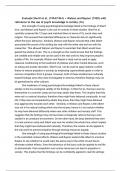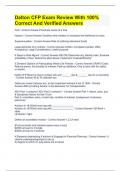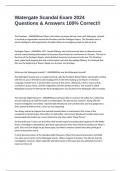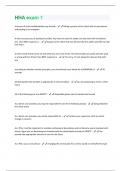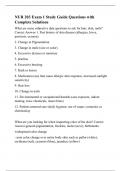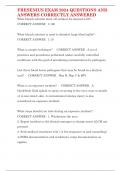Exam (elaborations)
issues and debates use of knowledge classic studies (16) essay
- Institution
- PEARSON (PEARSON)
essay on 16 marker about evaluating use of psychological knowledge from sherif et al. and Watson and rayner - classic studies in social psychology and learning theories. section b and c in paper 3 4 PEELs and a balanced conclusion for top band marks
[Show more]
